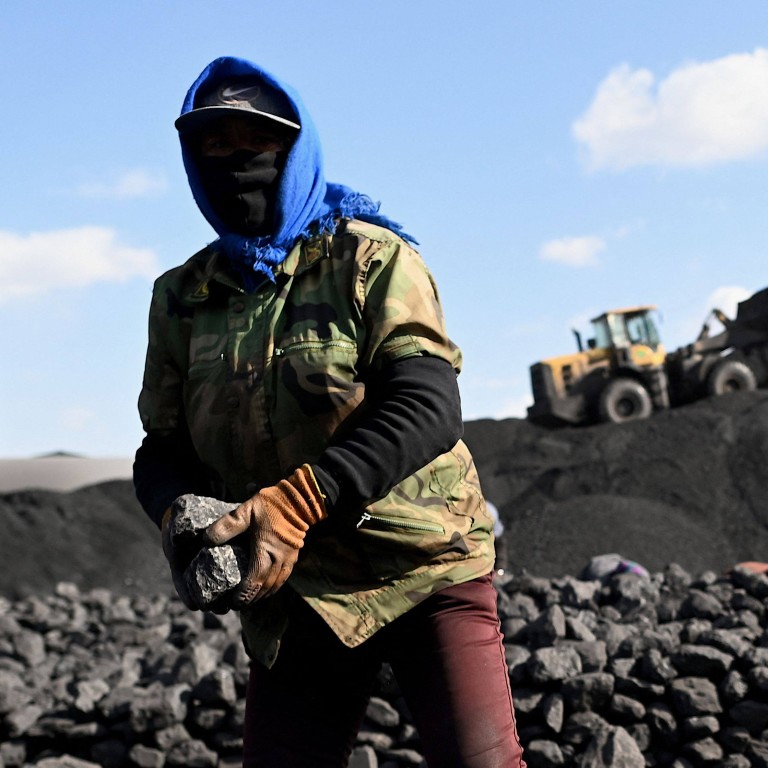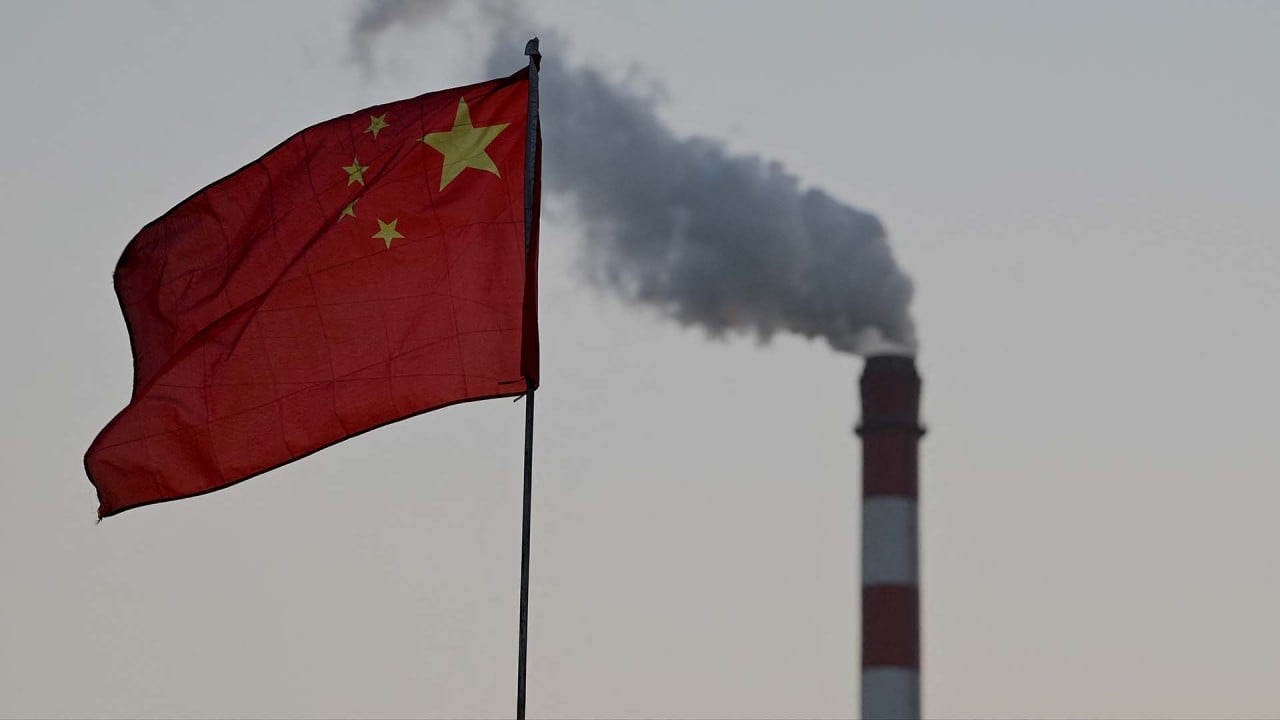
China sets ‘reasonable’ price range for thermal coal, cites ‘lessons’ from recent power crunches
- China has set the benchmark for 5,500 kcal thermal coal at Qinghuangdao Port at 570-770 yuan (US$86.98-US$121.77)
- Beijing is trying to balance the profits of coal plants and miners after the nation was hit by crippling power outages last year
China’s top economic planning agency has set a “reasonable” price range for thermal coal for medium- and long-term trading to stabilise supply and prevent excess price volatility, which were triggers for crippling power cuts last year.
The National Development and Reform Commission (NDRC) said in a notice on Thursday it had set the benchmark for 5,500 kcal thermal coal at Qinghuangdao Port at 570-770 yuan (US$86.98-US$121.77).
“Setting a price range does not mean that we are going back to government pricing,” said Wan Jinsong, director of NDRC’s price department.
“When the coal price falls or rises excessively beyond the reasonable range, it will bring adverse effects and even endanger security and stable supply of energy. There have been many lessons in recent years.”
The NDRC has had several meetings with major coal miners, port operators and power plants since October to set price targets for thermal coal.
Deepak Kannan, head of global coal pricing at S&P Global Platts, said China has been trying to maintain a price range for its benchmark coal for a number of years.
“They have also encouraged coal miners and utilities to enter into long term contracts to minimise volatility,” he said. “However, since last year, prices have been quite volatile and China has been trying to cool prices.
Coal industry insiders blame Beijing for China’s ‘man-made’ power crisis
“They are urging their miners to boost production and maintain sufficient stocks at ports so as to ensure that prices don’t move too significantly.”
Analysts said the benchmark 5,500 kcal thermal coal at Qinghuangdao Port has been trading within the price range set by the NDRC in recent days.
“The regulator set the cap at 770 yuan to make sure that coal plants’ profits are not hurt too much when market coal prices spike. The range also mirrors the coal power tariff range of 20 per cent fluctuation unveiled last October,” said Qin Yan, lead analyst at Refinitiv.
The effectiveness of the announcement remains to be seen
Qin said the new price range will lead to more costs being passed on to consumers, which will help coal-fired power plants absorb surging coal prices. If coal prices trade above 770 yuan, the NDRC will intervene, she added.
However, the direct price intervention will not be enough to stave off future power crunches because “coal plants still face challenges to profits”, Qin said.
Boris Kan, vice-president and senior credit officer at Moody’s Investors Service, said that the reference price range would help promote stability in the nation’s power supply.
“That said, given the significant gap between current spot coal prices and the reference price range, the effectiveness of the announcement remains to be seen,” he said.
Liu Lei, an analyst with Today Think Tank Energy, said smaller coal users or medium-sized power generators that are not able to secure medium- to long-term coal price contracts will still be subject to price volatility.
China has been closely watching surging global commodities prices, including for coal, in recent months.
The average coal price in China increased by more than 20 per cent in 2021 to 673 yuan a tonne and was still around 750 yuan a tonne in January this year, after a 14 per cent drop from a peak of 848 yuan a tonne last October, according to a report by US rating agency Moody’s last week.
“We expect high coal prices will continue to present challenges for coal-fired generation companies in the next 12 months,” Moody’s said.



